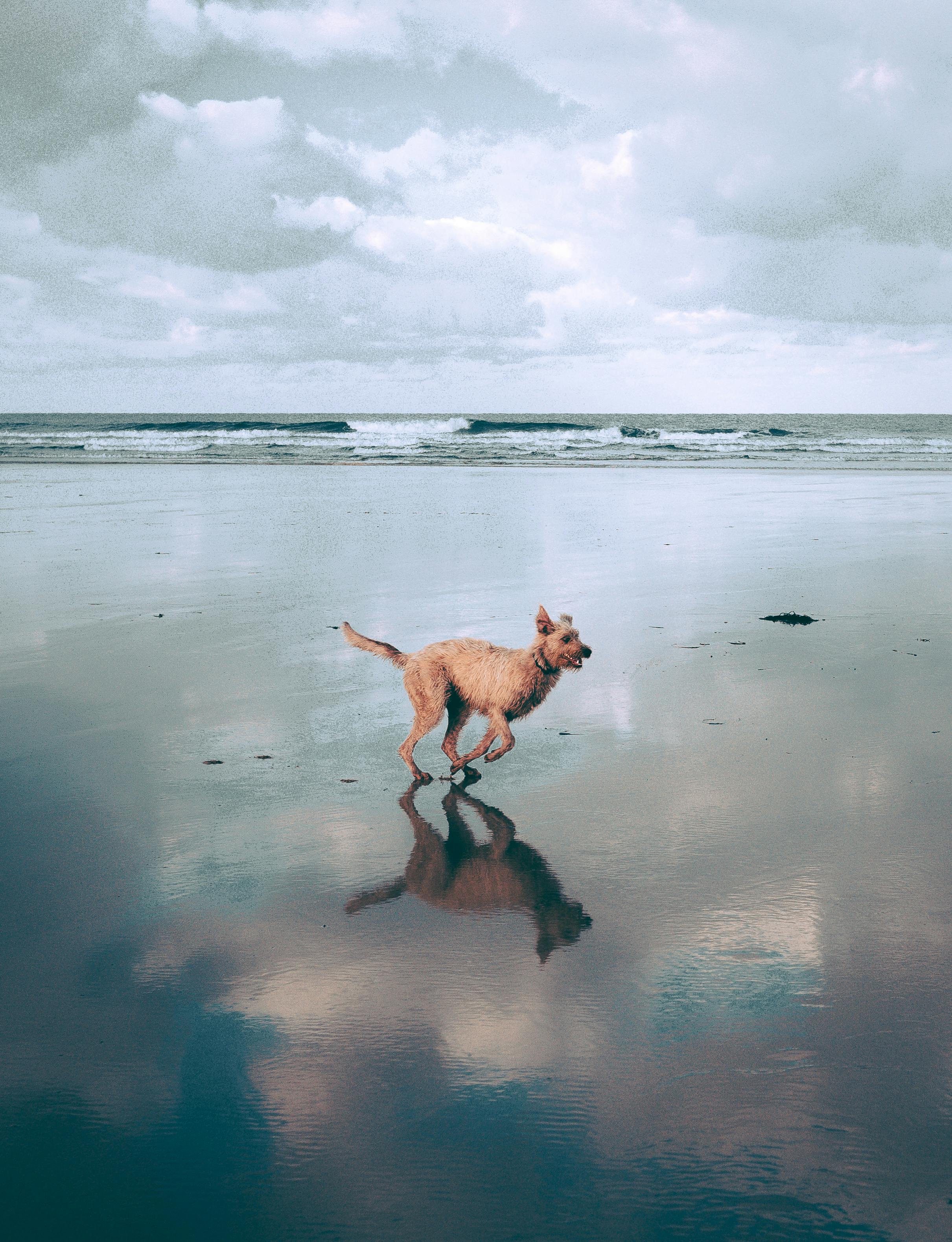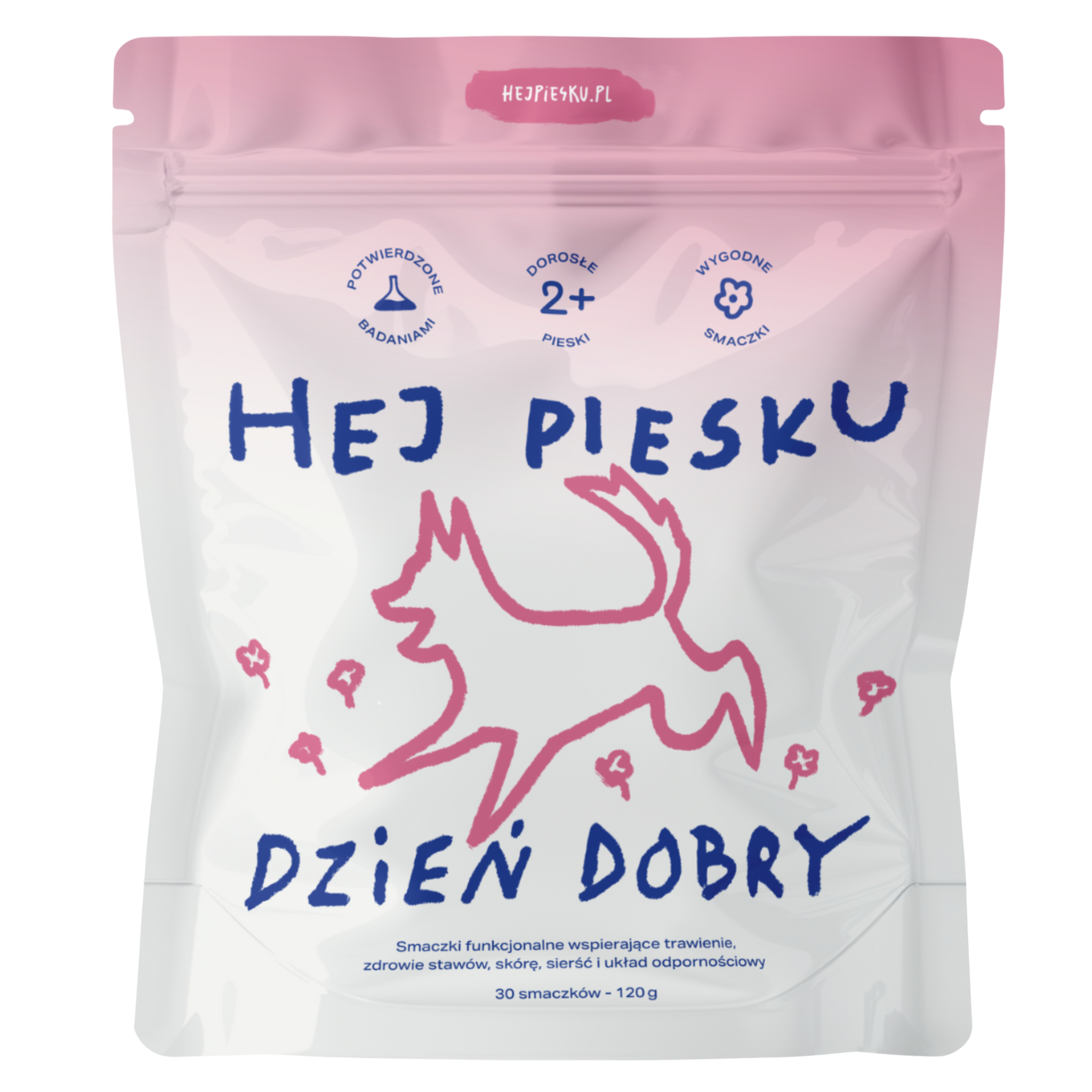Stomach torsion, also known as gastric dilatation and volvulus (GDV), is one of the most dangerous and sudden conditions that can affect a dog. It is the responsibility of every owner to know how to recognize the problem, what causes it, and – most importantly – how to protect their dog from this threat.
What is stomach torsion?
Stomach torsion is a condition in which a dog's stomach fills with gas, food, or fluids, and then twists on itself. This twisting causes the closure of the stomach outlet and pressure on adjacent organs, leading to circulatory disturbances, hypoxia, and shock. Without prompt veterinary intervention, GDV is usually fatal.
Where does stomach torsion come from?
Although the exact cause of GDV is not fully understood, studies indicate several risk factors:
-
Genetics and anatomy: Breeds with deep chests are particularly at risk.
-
Age: Older dogs, especially those over 7 years old, are more susceptible.
-
Fast eating and swallowing air: Dogs that eat greedily may be at greater risk.
-
Physical activity after a meal: Intense activity right after eating increases the risk of torsion.
-
Stress: Dogs exposed to stress may be more susceptible to this problem.
Which breeds are at risk?
Dogs of large breeds with deep chests are most at risk, including:
-
German shepherd
-
Great Dane
-
Irish setter
-
Labrador retriever
-
Golden retriever
-
Boxer
-
Saint Bernard
-
Newfoundland
-
Afghan hound
-
Weimaraner
-
Airedale terrier
-
Borzoi
It's also worth remembering that even medium-sized dogs, such as the English bulldog, can be at risk if they have a specific anatomical structure or other genetic predispositions.
Symptoms that should concern you
Gastric torsion develops quickly, so knowing the symptoms is key to saving your dog's life. Pay attention to:
-
Abdominal swelling and hardness to the touch.
-
Anxiety, drooling, difficulty breathing.
-
Dry heaving (without stomach contents).
-
Rapid weakness, apathy, or collapse.
If you notice these symptoms, act immediately. Stomach torsion requires urgent surgical intervention.
How to prevent stomach torsion?
Although risks cannot be completely eliminated, you can take steps that significantly reduce them:
-
Feeding the dog an appropriately sized portion
-
Serve meals in smaller portions, but more frequently (3/4 times a day).
-
Use slow-feed bowls so the dog doesn't eat too greedily.
-
Avoid activity after eating
-
Allow the dog to rest for at least 1–2 hours after a meal. Also, avoid feeding immediately after an active walk.
-
Stress reduction
-
Create a calm environment, especially during feeding. The dog should have its own fixed, safe place for meals.
-
Consultations with a veterinarian
-
For dogs in at-risk groups, consider a preventive gastropexy procedure (attaching the stomach wall to the abdominal wall), which prevents the stomach from twisting.
What should a dog's diet look like?
Diet plays a key role in the prevention of GDV. It should be easily digestible and free of ingredients that cause fermentation in the intestines.
Principles of composing a light diet:
-
High-quality protein: Easily digestible meat, such as turkey, chicken, or lamb, provides easily absorbable protein.
-
Low-FODMAP carbohydrates: Choose low-fermentation ingredients, such as white rice, millet, sweet potatoes, or pumpkin. Avoid corn, soy, wheat, and legumes.
-
Healthy fats: In small amounts, fats aid in the absorption of nutrients, but avoid fatty meals.
Can supplementation help?
Supplements that support digestion and the overall condition of the dog are an important part of the diet. It is worth including:
-
Probiotics and prebiotics: Support healthy gut flora, which affects proper digestion.
-
Digestive enzymes: Help in the breakdown of food, reducing the risk of bloating.
-
Omega-3: Reduce inflammation and support the overall health condition of the dog.
-
Resveratrol and quercetin: Natural compounds with anti-inflammatory and antioxidant properties that can support digestive health and reduce oxidative stress in older dogs.
-
Lion’s Mane (Hericium erinaceus): An adaptogen that supports immunity and the functioning of the nervous system. It may also improve overall health condition and body recovery.
-
L-carnitine: Supports heart and muscle function in older dogs.
How to react in a crisis situation?
If you suspect gastric torsion, time is crucial. Do not try to treat your dog yourself – go to the nearest clinic immediately. On the way, try to keep your dog lying down and provide them with calm.
Gastric torsion is a very serious condition, but the right knowledge and preventive actions can save your dog's life. Maintain a healthy diet, proper eating habits, and supplemental support, especially for dogs in at-risk groups.






